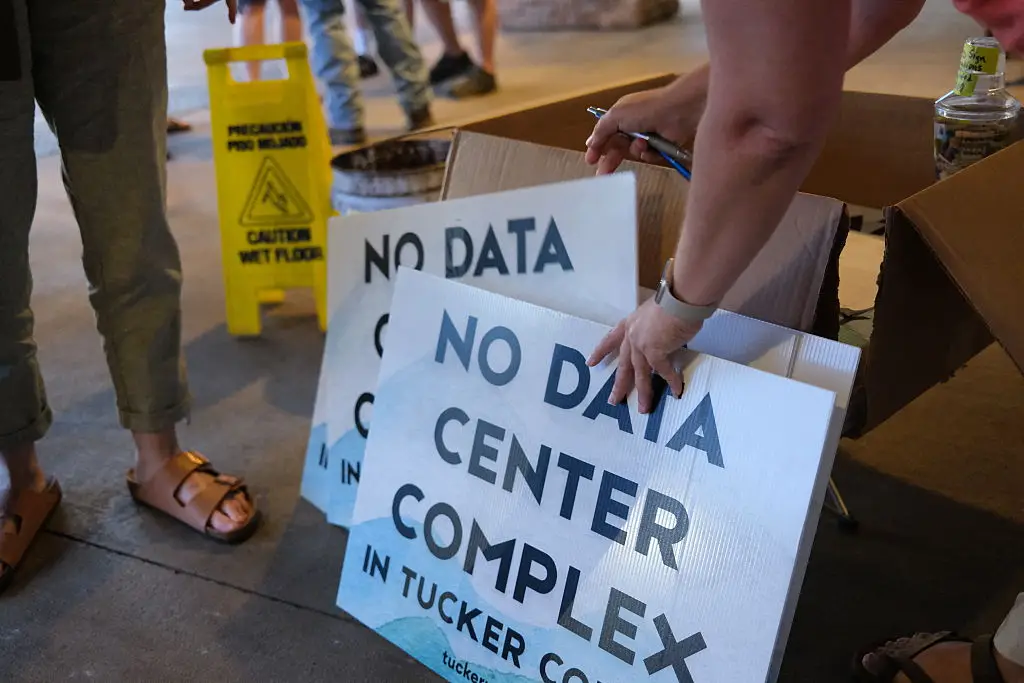
Mark Zuckerberg and Meta have announced a major new component of their AI plans, revealing a behemoth data center that could cover the entirety of Manhattan when completed.
The race for victory in the world of artificial intelligence is split broadly into two categories, as companies have to achieve supremacy when it comes to talent and software, alongside supplying sufficient energy to power it all.
There's no point in having the best engineers and programmers on the planet if they can't achieve their goals due to power limits, and that's precisely why Meta has decided to go ahead with this new project, in an aim to topple Google and OpenAI.
It's sheer output remains staggering though, and could have worrying implications for the future of the United States and the global climate as a whole, yet very little stands in the way of Zuckerberg when it comes to achieving this goal.
How much power does Meta's new data center provide?
As reported by TechCrunch, Meta's plans for a new data center, named 'Hyperion', outline its capacity to supply five gigawatts (GW) of computational power, blowing all other similar projects from competing companies out of the water.
Advert

It's estimated that it will be located in Louisiana, with Meta previously announcing plans for a $10,000,000,000 data center development in Richland Parish, although it won't immediately provide its full capacity.
According to Meta spokesperson Ashley Gabriel, Hyperion will initially supply 'just' two gigawatts of power when it goes online in 2030, and this will then scale up to the full 5 GW goal in the years following.
Mark Zuckerberg has also revealed that Meta will bring online a 'super cluster' called Prometheus that is capable of producing 1 GW of power in the next year, and this will be located in New Albany, Ohio.
These data centers will be among the first of their kind when it comes to sheer capacity and supply, and combining this with Meta's recent efforts to poach key staff from rivals like OpenAI it's clear that Zuckerberg means business in the AI world, especially at the expense of his competitors.
What will be the environmental consequences of this data center?
While both Prometheus and the eventual construction of Hyperion will represent significant steps forward when it comes to AI development, both do come with worrying environmental consequences that don't necessarily have an answer right now.
It's difficult to quantify quite how much five gigawatts is from an energy perspective, but it's more than enough to power millions of homes across the United States, and the entirety of New York reaches an average peak demand of 10.4 gigawatts in the height of summer according to the NYC Mayor's Office.

The amount of power and water drawn by current data centers already has a damaging effect on the communities surrounding too, as one of Meta's data centers in Newton County, Georgia, is causing water taps to run dry in some homes.
Elon Musk's xAI has also been involved in significant controversy surrounding its main data center in Memphis, Tennessee, as it is causing significant pollution, in part due to allegedly illegal numbers of methane gas turbines in use at the compound.
Energy has to come from somewhere too, and with the increased demands of AI data centers the US Secretary of Energy Chris Wright has asserted that the government will increase coal, nuclear, geothermal, and natural gas energy production.
Estimates from experts indicate that AI data centers could take up roughly 20% of America's entire energy consumption by 2030, marking a significant increase from the 2.5% total in 2022. As a consequence, communities are either going to see their power squeezed out, or energy production will increase, likely at a cost to the environment.
